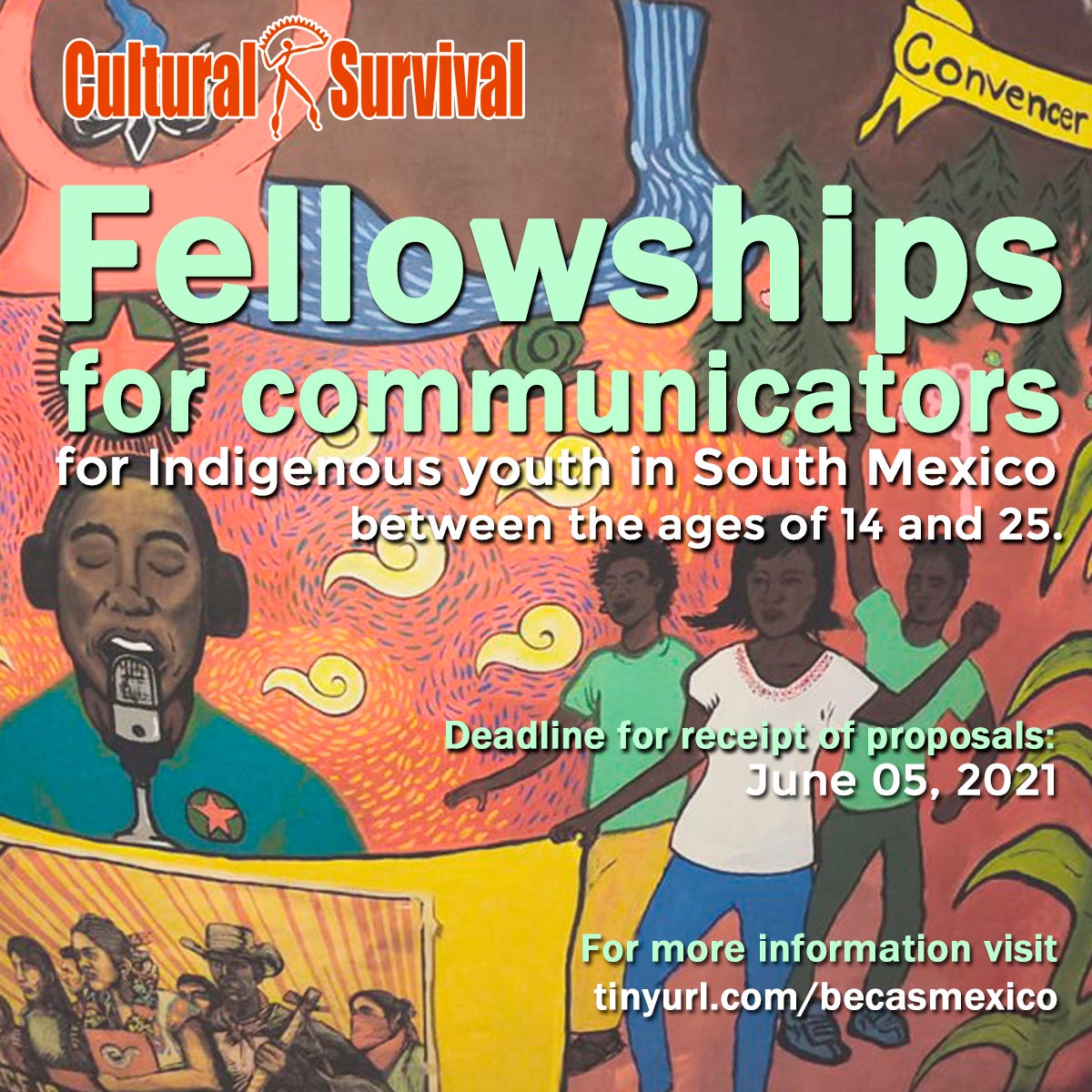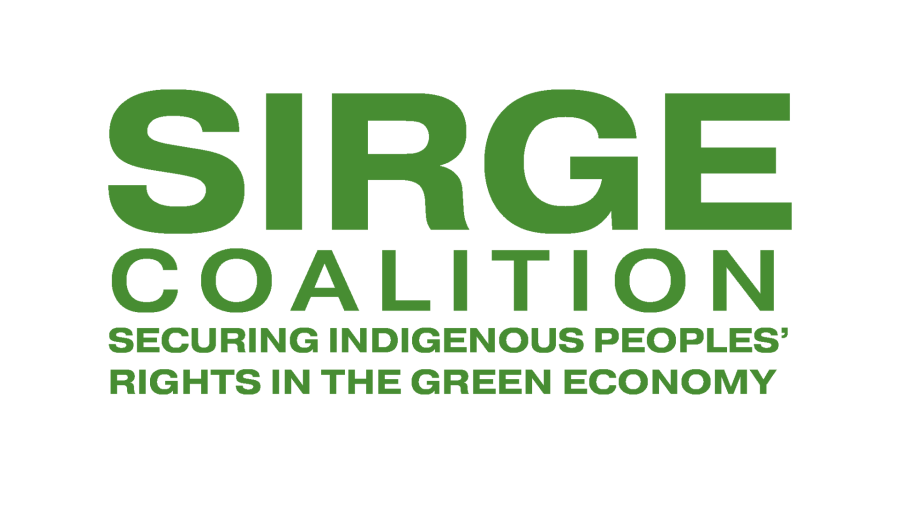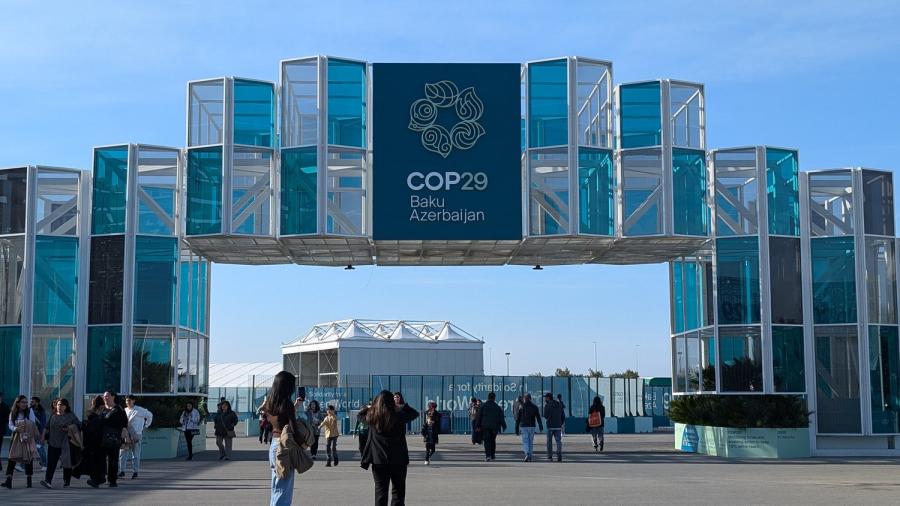
Cultural Survival is pleased to announce our 2021 Indigenous Community Media Youth Fellows, as part of the Indigenous Community Media Program. Our Fellowship Program supports young Indigenous leaders between the ages of 18-25, who are eager to learn about technology, program development, journalism, community radio, media, and Indigenous Peoples’ rights advocacy. This is the third year of the Fellowship Program, which has awarded grants to 33 youth to date. The capacity of the fellows is built through training, community radio station exchanges, and conference attendance.
This fellowship is an opportunity to assist fellows to represent the voices of their communities and bring awareness of local issues to global conversations through their proposed projects, all the while strengthening their cultural identities and leadership. Meet our 2021 Fellows!
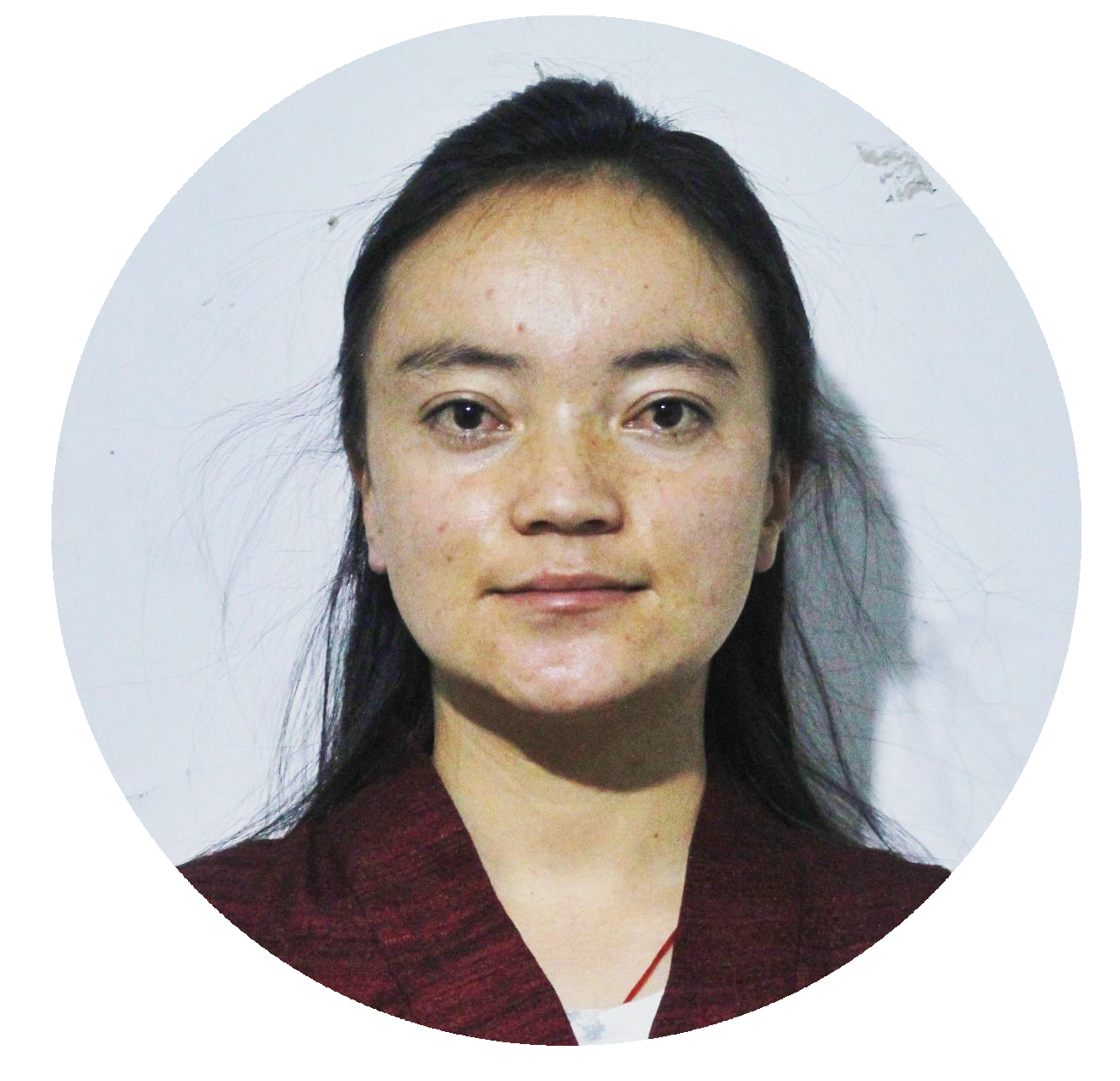
Ishey Angmo (Ladakhi) from North India
Ishey Angmo, 24, is from a small village Martselang in Union Territory of Ladakh in North India. Currently, she is participating in a program from the Students’ Educational and Cultural Movement of Ladakh (SECMOL), working with the college academic team and media team.
Since childhood Ishey has been interested in radio and in 2015 she joined SECMOL where she has the opportunity to participate at the campus radio station, working on a quarterly newsletter and producing a TV program allowing students to gain audio-visual skills and experience. She strongly believes that the media plays a crucial role in educating, and mobilizing the people of Ladakh. “I want to do this to make sure whatever is ours, remains ours, saved and protected.”
Her fellowship project, titled “Youth Empowerment Through Media to Protect Indigenous Culture, Tradition and Land,” aims to bring change in Ishey’s community through media and uplift the voices of the younger Ladakh generation. The project will provide capacity building in radio programming, audiovisual, and internet use to ten youth with a goal of strengthening, protecting, and promoting Indigenous cultures and traditions. The workshops will be a platform for youth to communicate their aspirations and apprehensions, learn about their rights and how to be effective mediators in promoting the Indigenous wisdom and socially important issues impacting their community.
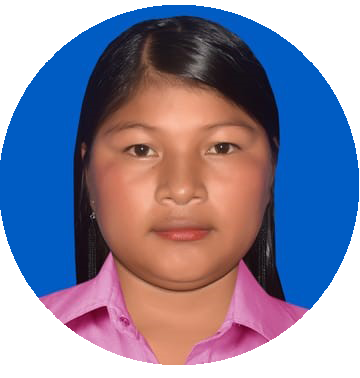
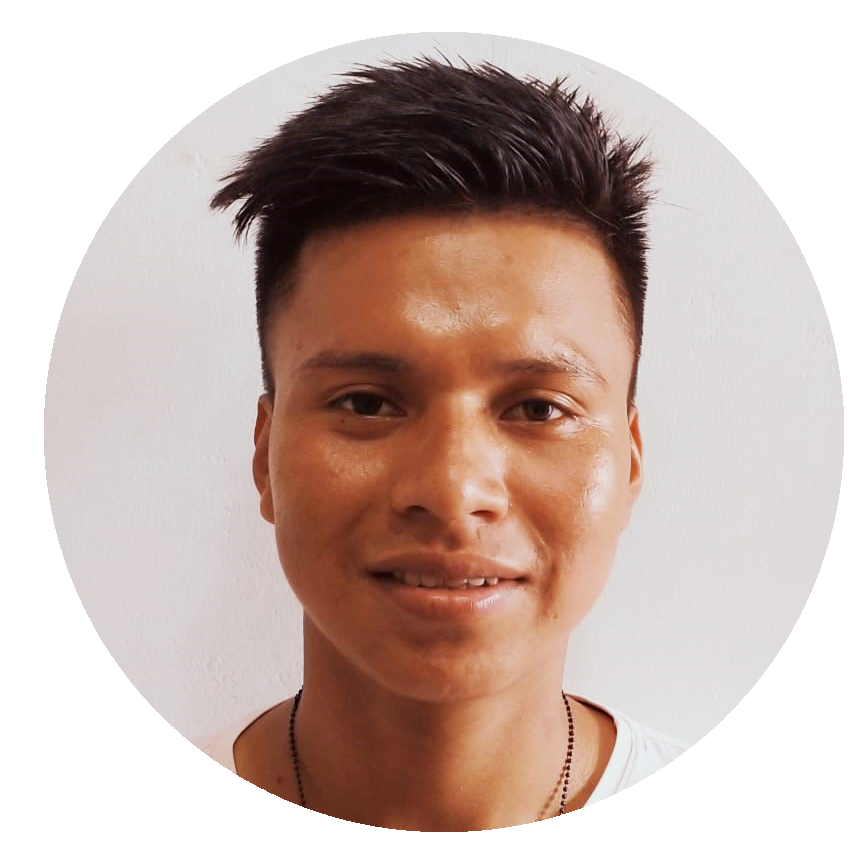
Angy Paola Conde Conchave (Embera Dovida) and Jhon Andres Duave Serezo (Embera Katio) from Colombia
Angy Paola Conde Conchave, 22, is from the community of La Felicia, Alto Baudo, Choco, and is the mother of a 5-year-old girl. She is part of the Choco Regional Indigenous Council (CRICH) Women's Committee, supporting the community processes of women communications. She has served as an educator and promoter of early childhood in Indigenous communities in the municipality of Medio Baudo.
Jhon Andres Duave Serezo, 21, is from the Los Farallones community, Tado, Choco, and is a father of a 1-month-old boy. He has worked as a communicator and facilitator at the Association of Indigenous Councils of Alto Baudo Condoto Tasi and is a member of CRICH.
Both Angy and Jhon work with the CRICH audiovisual collective training youth in communication skills to spotlight what is happening in Indigenous territories of Choco. Their work emphasizes peacebuilding for the protection of their territories led by Indigenous women.
Their fellowship project, “The Resistance and Peacebuilding of Indigenous Women from the Territory,” will provide training in production and post-production for community radios. They will also organize an exchange of experiences with Indigenous organizations working with community radios. Youth will participate in writing workshops for content development (radio programs, press releases, website, scripts for audiovisual productions) and will take part in the production of short videos on resistance processes led by women.
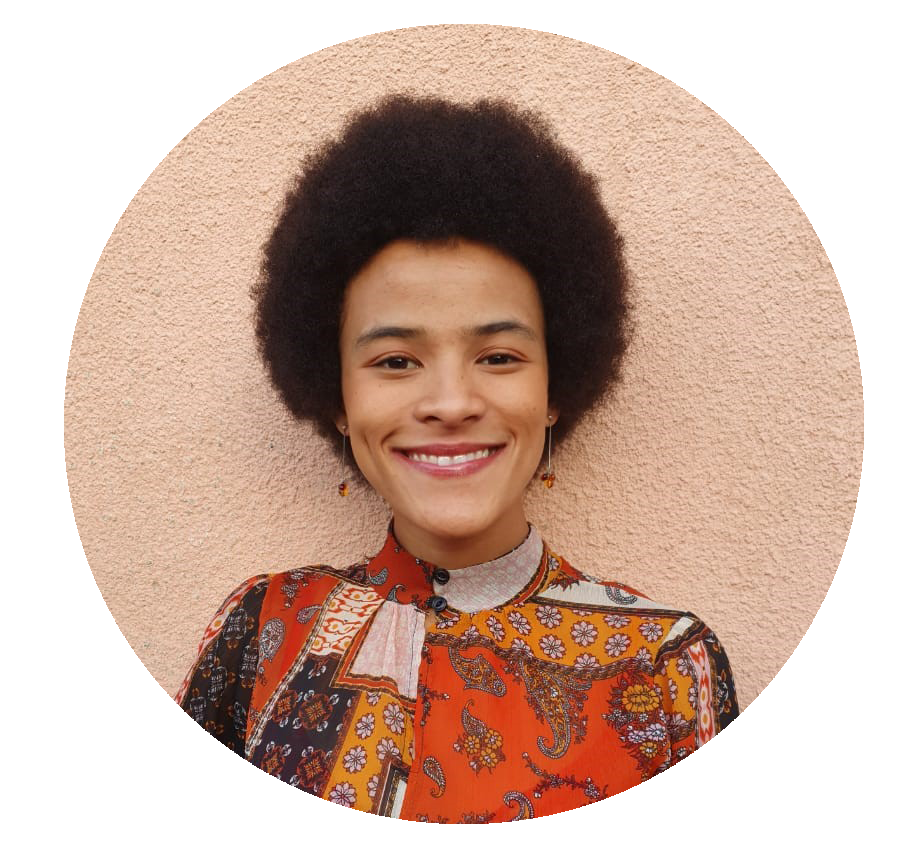
Sharri Cannell (Khoe San) from South Africa
Sharri Cannell, 26, is an environmental activist from South Africa. She is also an environmental scientist by profession. She has an honors degree in Zoology from the University of Johannesburg. Sharri is the director of the non-profit organization Indigi Youth Exchange Africa (IYXAfrica) that provides assistance to Indigenous and marginalized communities within Southern Africa. Over the past four years, she has embarked on a journey in exploring her ancestral heritage and learning about Indigenous knowledge systems of the Khoe and San people. This journey led to the creation of Indigi Youth Exchange Radio, a space to explore Indigenous heritage and to bring it to the forefront for urban-dwelling Indigenous individuals as well as for the world to gain insight on the Indigenous Peoples of Southern Africa.
Her fellowship project titled, “Indigi Youth Exchange Radio” aims to unite Indigenous communities and youth through dialogues and discussions on a variety of Indigenous topics such as decolonization, Indigenous law, environmental policies, Indigenous linguistics, social conflicts, gender-based violence, conflict resolution, the genocide in Namibia and post-war conflict resolution, as well as Indigenous land affairs. Eight broadcasters, six women, and two men will create programs on these in their own unique voices. Each broadcaster is from a different part of South Africa and comes from communities with unique histories, issues, and needs. Through the project, Sharri hopes to digitally archive Indigenous knowledge systems that would usually be passed down orally and make the recordings accessible to urban Indigenous Peoples through radio programs, sparking a revitalization of ancient practices and customs.
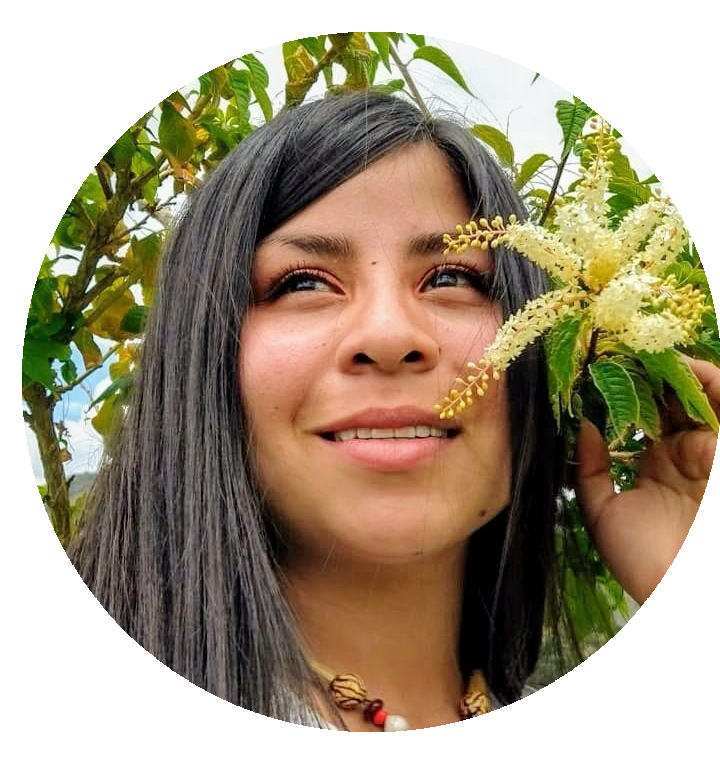
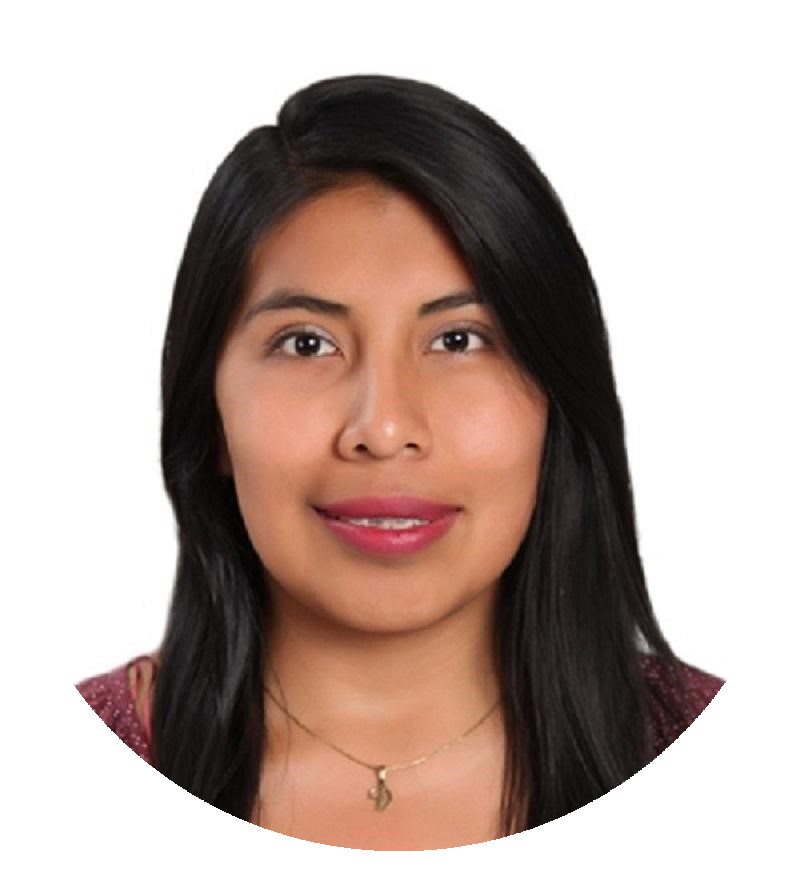
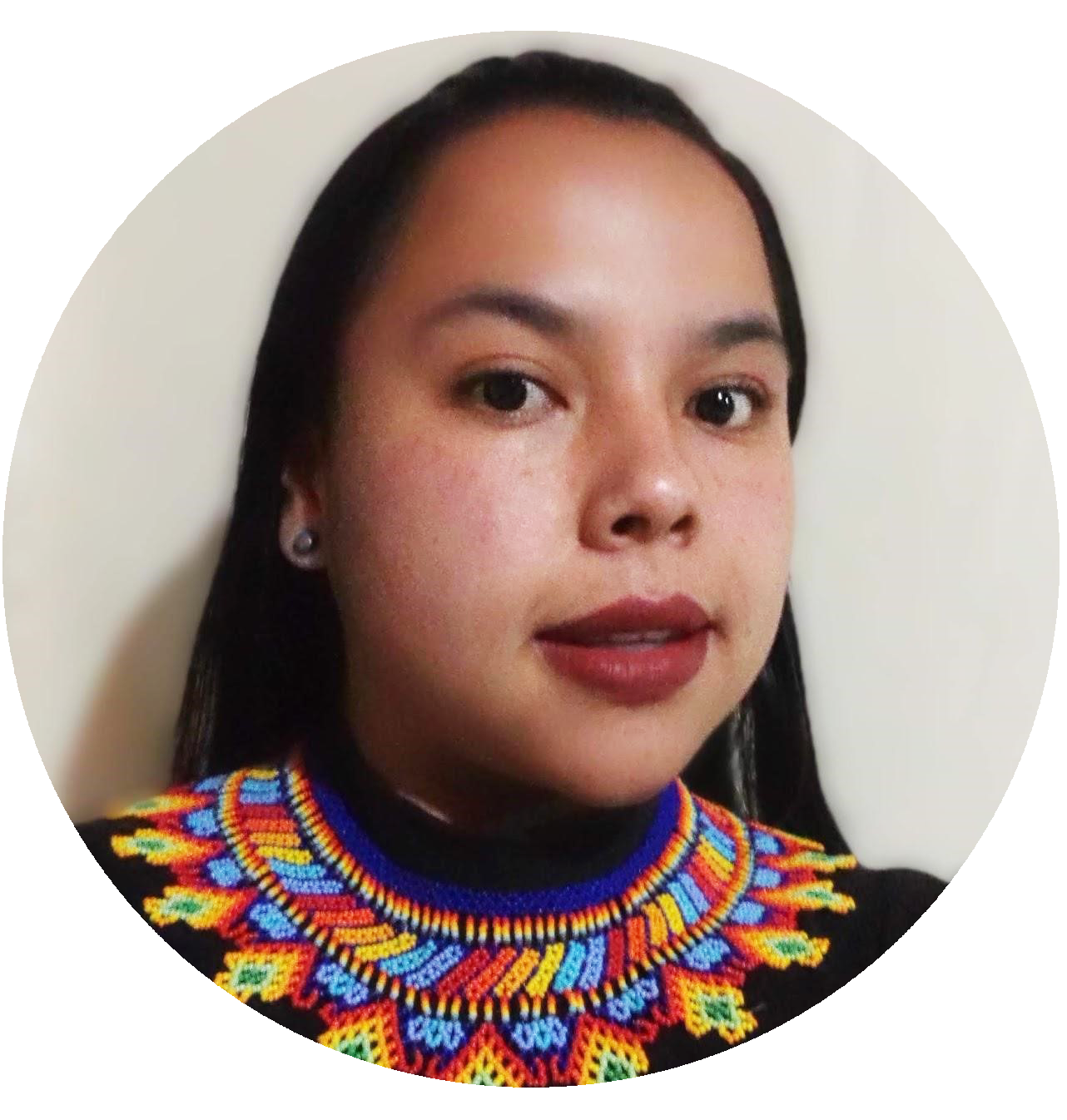
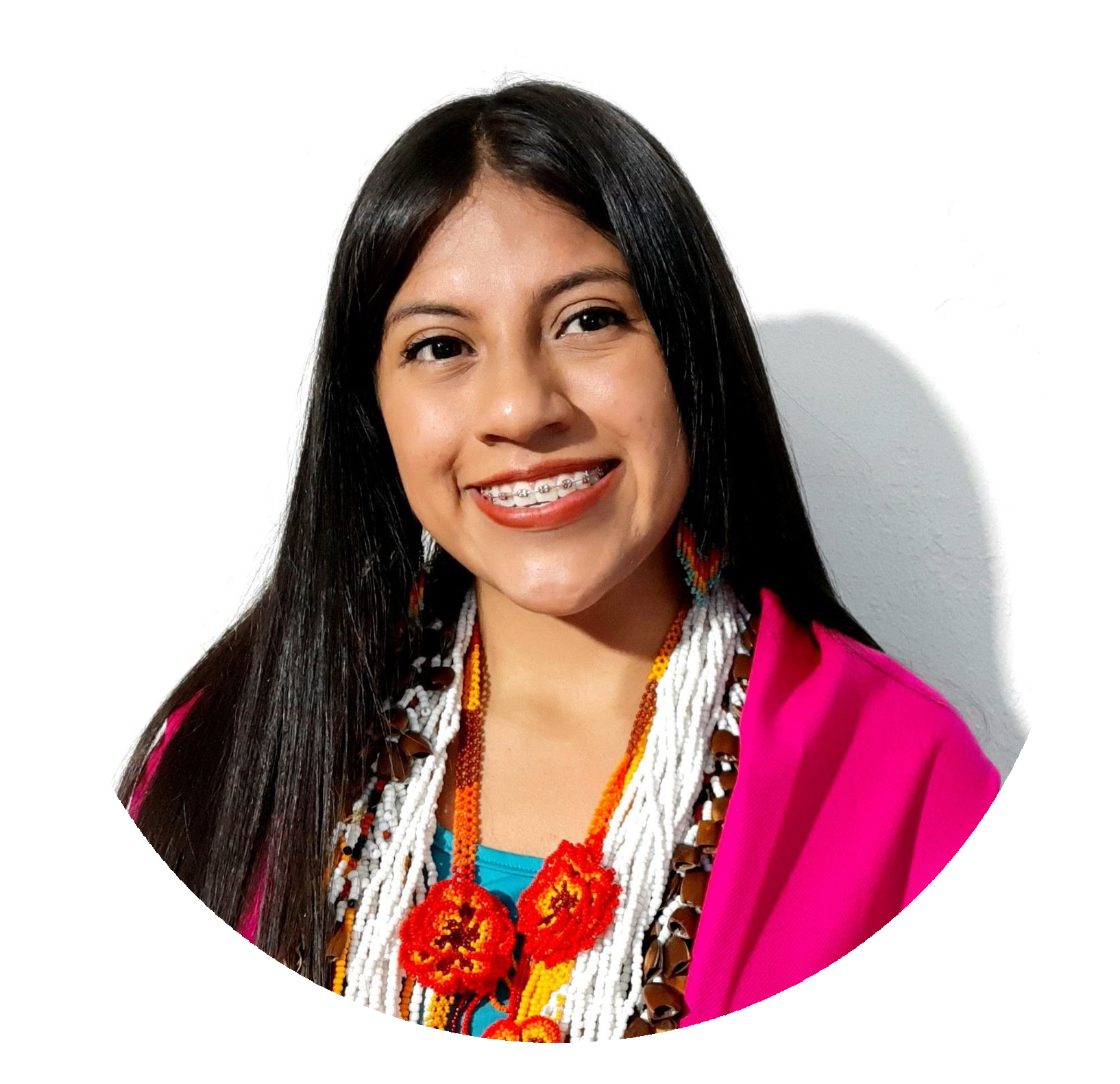
Indigenous Women Circle of Words (Pijao, Embera, Inga, Pastos) from Colombia
The MLK Indigenous Women's Word Circle is made up of Indigenous women, university students from different institutions of higher education in Bogotá, Colombia, former scholars of the Martin Luther King program of the United States embassy. Andrea Katerine Yate Erazo (Pijao), 20, from the Cabildo Ambiká Pijao of Bogotá; Daniela Estefania Ceballos Piarpuzan (Pastos), 24, from Los Pastos de Ipiales community, Nariño; Mayra Alejandra Suárez Tapasco (Embera), 25, from the Indigenous Reserve Cañamomo and Lomaprieta of Riosucio Caldas; Paola Andrea Sánchez Cuatindioy (Inga), 22, from Indigenous community Inga in Bogotá. They participate in different student groups such as UN-Gen, REDAI, CIUB, CIUPN, which seek to strengthen and recognize the diversity of all expressions, as well as support leadership-building in Indigenous students. Also, they are members of organizations in their communities such as youth and women's councils, they have also participated in training and leadership spaces to strengthen their skills as a group. Recently. they have been work on a radio segment called "Walking Our Territories", amplifying the voices of Indigenous children and elders of their communities.
Their fellowship project entitled “Voices of Our Land” will share the stories of five Indigenous communities of the Inga, Pijao, Pastos, Muisca, and Embera Peoples through multimedia, reaching local, national, and international audiences. This series of podcasts and audiovisual productions will showcase indigenous worldviews, traditional knowledge, and customs, inspiring young people, children, and adults to be proud of their cultural roots.
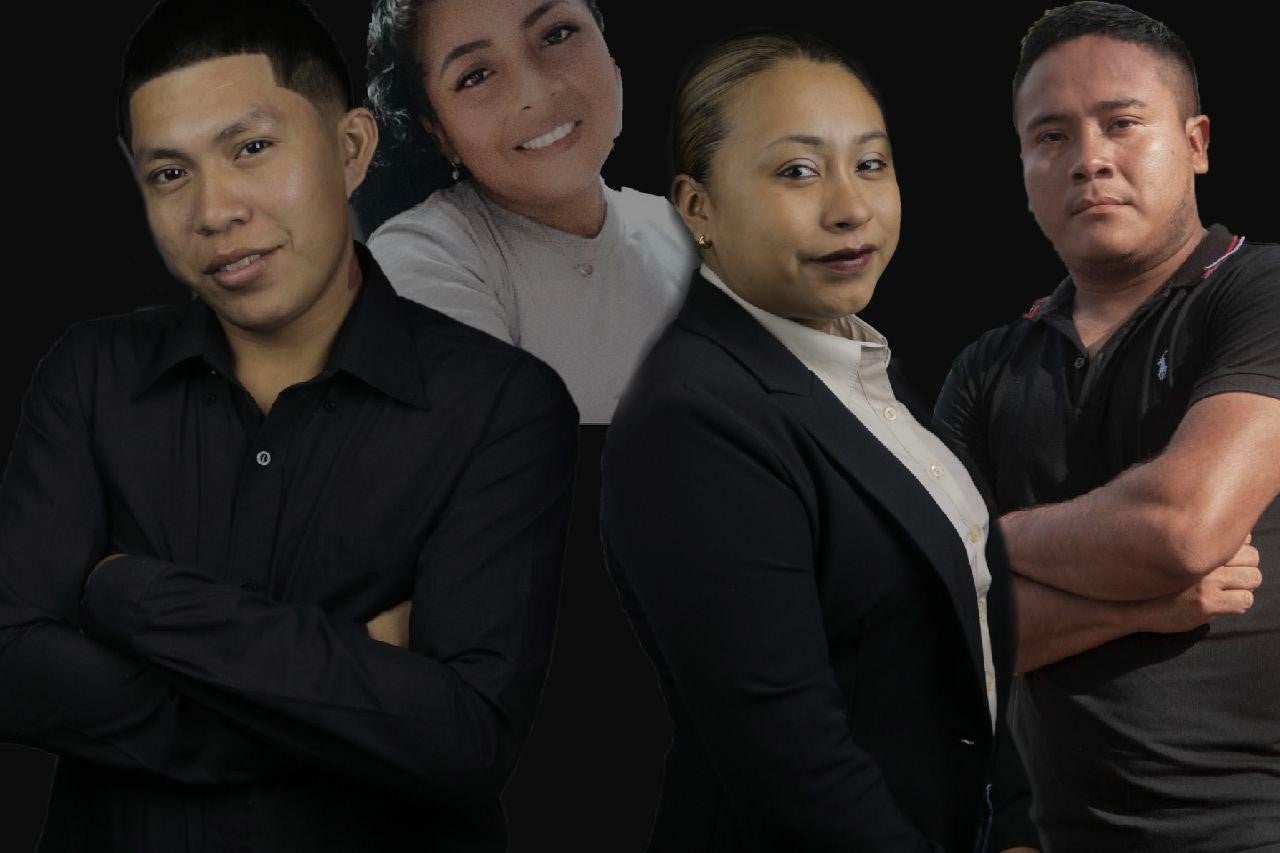
Mulokot Foundation Youth (Wayana) from Suriname
Cultural differences between the urban and Indigenous rural communities tend to be greater than most can imagine. Gayle Lisa Timpico, 24; Mapale Itoewaki, 25; Dijon Koemapu, 24; and Jennifer Nailoepun, 24, are Wayana youth whose lives have been influenced by both spaces. All of them have lived in the capital city of Suriname, Paramaribo, as well as in their ancestral communities in rural Suriname. Some have spent the majority of their childhood in the city, some moved later in life, but all of them know what being split between two worlds feels like.
Their fellowship project, Ëhepïtïhnë më wayana peinom ulë teihamo foto po (Four Wayana youth in the city), is a podcast series in which they share their own experiences, so that other Wayana youngsters, living not only in Suriname but also in French Guiana and Brazil, might feel a sense of guidance in the move some of them make. In order to create this podcast, the group will also receive training focused on strengthening their audiovisual skills. In addition to the podcast, the group will provide workshops in partnership with local primary schools in their respective communities to inspire children to get involved in radio by teaching them to create their own podcast episodes.
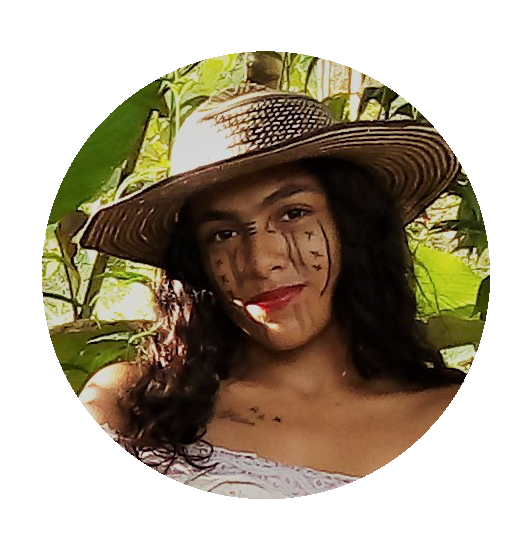
Lina Marcela Correa Pitalua (Senú) from Colombia
Lina Marcela, 20, is from the La Palma Indigenous community in Apartadó Antioquia, Colombia. She is a single mother of two beautiful girls. In 2014, when she was 14 years of age she was invited to a communication training with the Jimbusu Communication Collective of the Indigenous Organization of Antioquia where she learned about the importance of communication for Indigenous Peoples. She learned how to operate a camera, scriptwriting, interviewing people, and learned more about her own Senú culture. Lina is now the coordinator of the Pis (hummingbird) Communication Seedbed Project in her community working with Sénu youth on creating productions focused on the revitalization of Sénu culture, by capturing the wisdom and voices of elders. She is inspired by her daughters to leave the memory of her grandmother that allows the history of the Senú Peoples to live on.
Lina’s fellowship project entitled, "Jimbusu Communication Training School (Pis, Colibri)", will build the capacity of Indigenous communicators in technical, theoretical, conceptual areas in audiovisual and radio production. The beneficiaries of the process will be 24 young people between the ages 10-25. The content of the productions will aim to recover, strengthen, and promote the cultural expressions of the Senú and Chami Peoples.
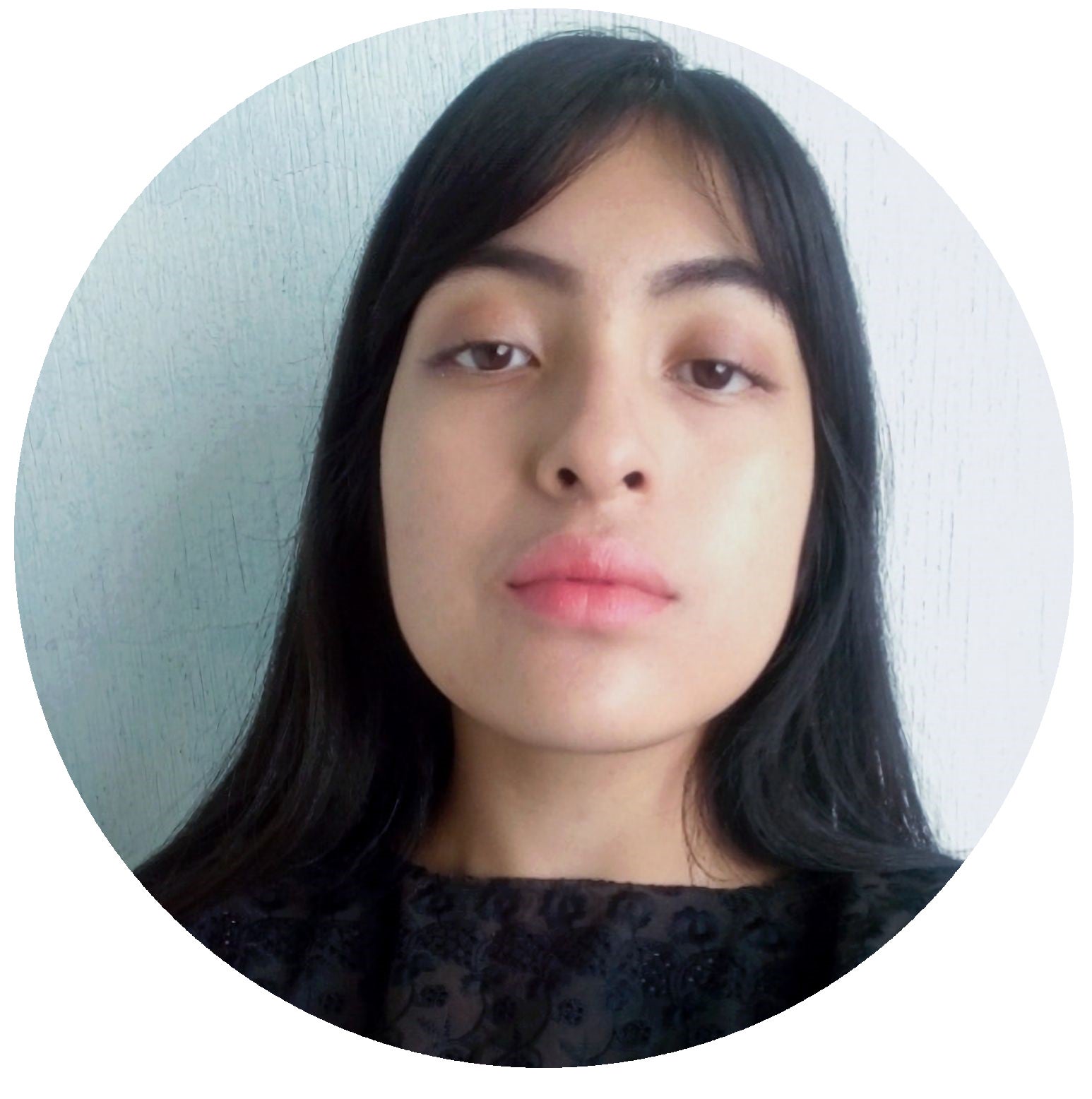
Nikté Bá Velásquez (Q´eqchi´) from Guatemala
Nikté Bá Velásquez, 21, is an Indigenous journalist who holds a bachelor’s degree in Communication Sciences from the University of San Carlos, Guatemala. She is committed to journalism and aspires to publicize issues of ecological nature and the recovery of Indigenous territories. She has trained in photojournalism and enjoys drawing and painting. As a child, she grew up surrounded by art.
Nikté’s fellowship project entitled “Women Communicators in Guatemala” will create an online radio channel in the Sierra de las Minas community as a space for freedom of expression. The project aims to involve women in spaces of community participation and communication so that patriarchal ideas and oppression within the community begin to disappear and are not normalized. Nikté plans on producing radio content in Q'eqchi ', Poqomchi', and Spanish on land recovery, Indigenous Peoples’ Rights, and freedom of expression. She will organize capacity-building workshops for 20 Maya Poqomchi´ youth in radio production, journalism, and communication tools with the emphasis on uplifting and reclaiming Indigenous women’s voices and supporting women to become fearless communicators.
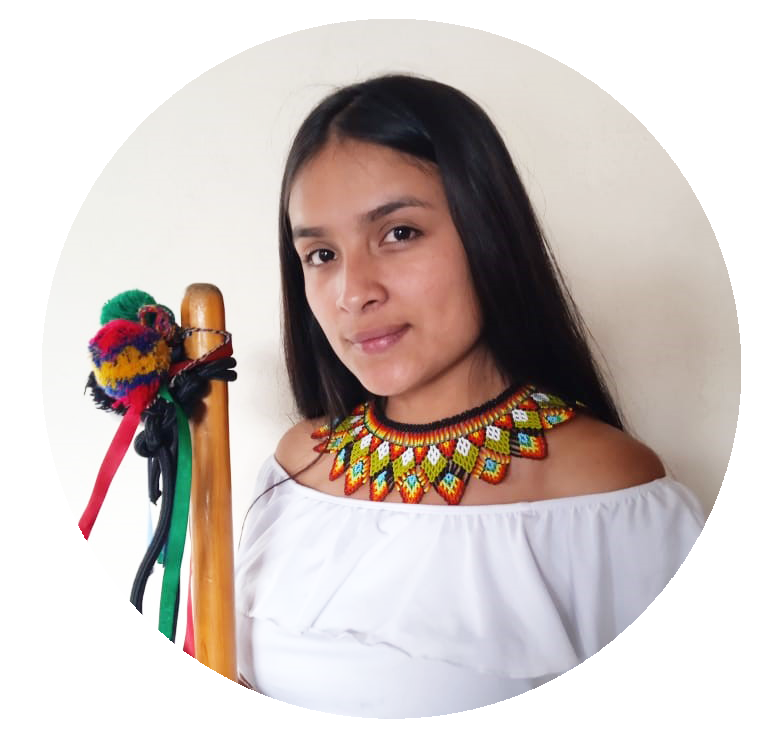
Erika Gómez Jamioy (Inga) from Colombia
Erika Gómez Jamioy, 19, lives in the Inga Reservation of Aponte Nariño, Colombia. She has received a lot of knowledge from her people mainly through the interpretation of traditional music. She says music “frees my mind and channels the negative energy from my body.” Erika is deeply passionate about children and vulnerable populations and has a desire to build profound connections of healing and empowerment. She is fluent in Inga.
Erika’s fellowship project entitled "Radio Novelo in Revitalizing the Oral Story and Memory of the Inga Peoples'' will be broadcasted as a novela (radio drama) on the Ñugpaman Parshlapuasunchi program airing at Inga Estéreo 98.1 FM. Through the project, Erika seeks to document and share Inga memories, myths, and legends, giving voice to their own narrative in a decolonized communication lens. These Mingas (conversations) around the tulpa (fire) will strengthen the use of the Inga language.
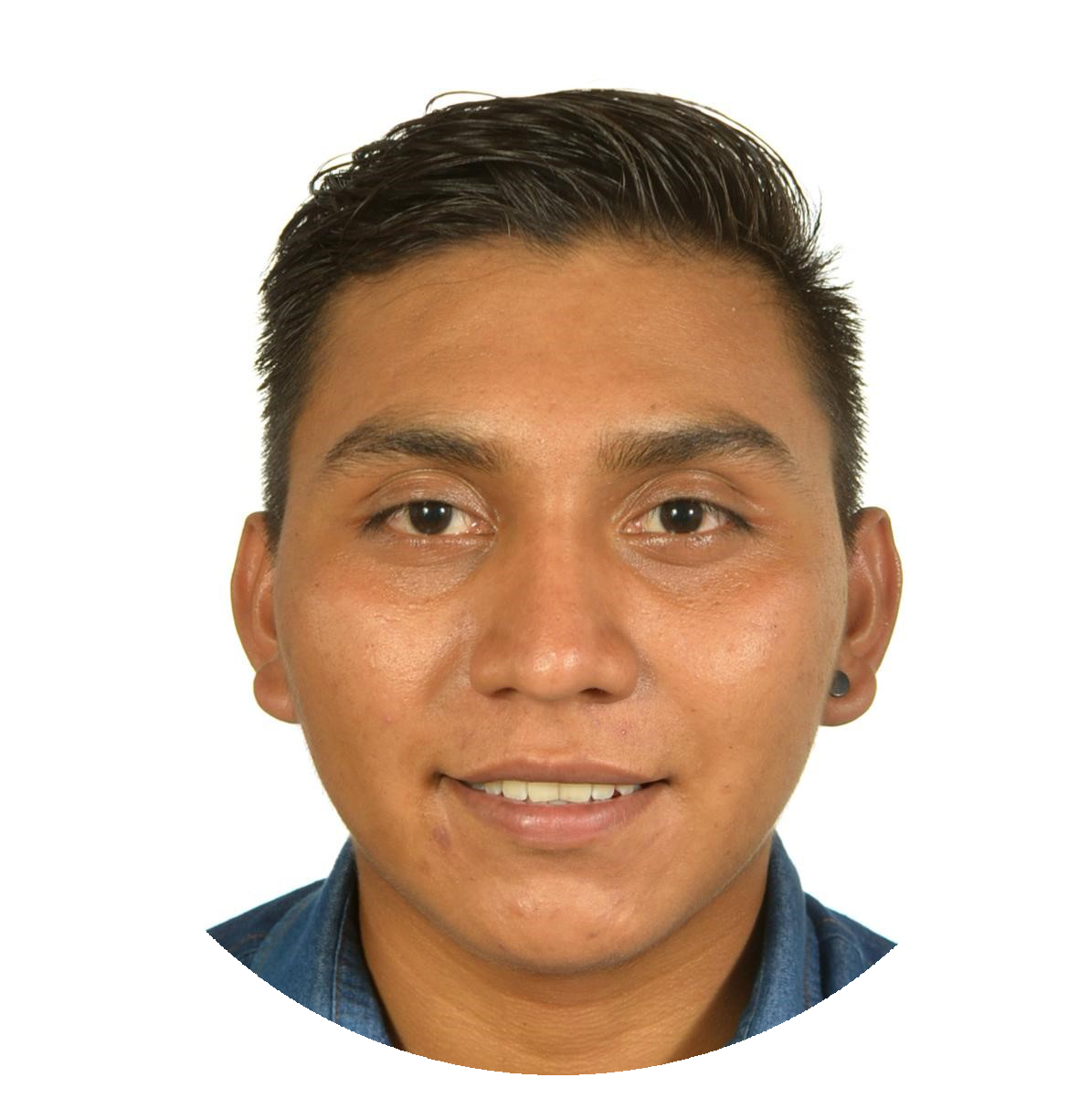
Juan Apóstol Caamal Pech (Maya Yucatan) from Mexico
Juan Apóstol Caamal Pech, 24, lives in the town of Cisteil, Yaxcabá municipality, Yucatán, Mexico and is fluent in his native language. A year ago, he graduated with a nursing degree from the Rodrigues Tamayo Educational Center in Ticul, Yucatán. He has been an activist since he was 18 years old and is currently part of the Assembly of Defenders of the Maya Múuch ’Xíinbal Territory.
Juan’s fellowship project is entitled “Its’atiles” and is about the vast knowledge corn Peoples hold. Its focus is on bilingual mediums of communication in Maya Yucatan and Spanish to express the everyday life, culture, stories, struggles of land protection, art, and the resistance of Indigenous Peoples audio and visual media. Juan will create four digital magazines and organize eight workshops for two Maya communities of the Yucatan. His fellowship project aims to enable Maya communities to have access to information from the perspective of Maya Peoples.
